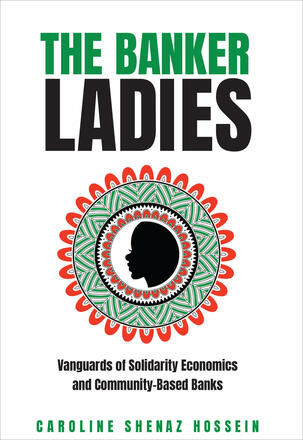
The Banker Ladies
Vanguards of Solidarity Economics and Community-Based Banks
Description
All over the world, Black and racialized women engage in the solidarity economy through what is known as mutual aid financing. Formally referred to as rotating savings and credit associations (ROSCAs), these institutions are purposefully informal to support the women’s livelihoods and social needs, and they act to reject tiered forms of neo-liberal development. The Banker Ladies – a term coined by women in the Black diaspora – are individuals that voluntarily organize ROSCAs for self-sufficiency and are intentional in their politicized economic co-operation to counter business exclusion.
Caroline Shenaz Hossein reveals how Black women redefine the banking co-operative sector to be inclusive of informal institutions that are democratic and focused on group consensus, and which build an activist form of economic co-operation that is intent on making social profitability the norm. The book examines the ways in which diasporic Black women, who organize mutual aid, receive little to no attention.
Unapologetically biased towards a group of women who have been purposely sidelined and put down for what they do, The Banker Ladies highlights how, in order to educate oneself about their contributions to politics and economics, it is imperative to listen to the voices of hundreds of Black women in charge of financial services for their communities.